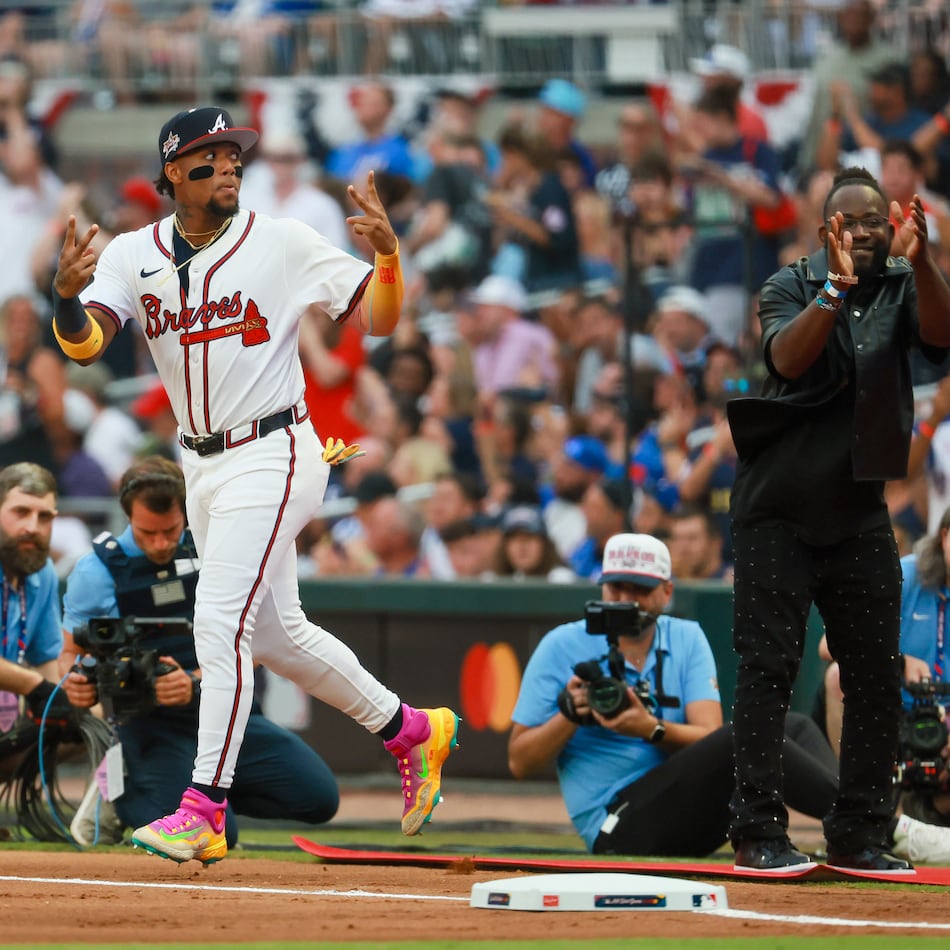Film preview
“The Rugby Player”
Screens at 1 p.m. Saturday as part of the 26th Out on Film festival, Thursday through Oct. 10 at Landmark's Midtown Art Cinema. $10.50. 931 Monroe Drive, Atlanta. 404-296-3807, www.outonfilm.org.
OTHER OUT ON FILM HIGHLIGHTS
The eight-day festival features more than 75 feature films, documentaries and short films from U.S. and international cinema, including:
“G.B.F”: Darren Stein’s kicky comedy commands the opening night slot. It’s about a high school student who comes out and causes rival “Mean Girl” groups to want to make him their, as the title suggests, gay best friend. With Megan Mullally and Natasha Lyonne. 7 p.m. Thursday.
“Birthday Cake”: Former Atlantan Chad Darnell’s mockumentary about gay family life and adoption. 6:45 p.m. Sunday.
“Kill Your Darlings”: Daniel Radcliffe (“Harry Potter”) portrays Allen Ginsberg, drawn into a murder with fellow Beat generation writers Jack Kerouac and William Burroughs. 9:10 p.m. Tuesday.
“Bridegroom”: Linda Bloodworth-Thomason’s (“Designing Women”) documentary about Shane Bitney Crone, who lost his partner Tom Bridegroom in an accident and was banned from the funeral by his partner’s parents. Crone made a YouTube video about the incident that went viral and led to Bloodworth-Thomason’s film. He is expected to attend. 8:30 p.m. Oct. 10.
The title of the documentary about 9/11 hero Mark Bingham is "The Rugby Player." But it could have just as easily been "The Rugby Player and His Mom."
Alice Hoagland is a warm presence throughout the film who recounts with vivid memories and an easy laugh the spirited, heavy metal-loving boy who grew into a key player on two national championship-winning rugby teams at the University of California-Berkeley.
That gave Bingham, who was gay, a toughness he tapped to join three other passengers in overtaking al-Qaida hijackers who plotted to fly United 93 into the U.S. Capitol. The public relations executive died at age 31 when the plane instead crashed in a field near Shanksville, Pa.
Hoagland will be in Atlanta on Saturday along with director Scott Gracheff to appear at a screening of “The Rugby Player,” one of the highlights of the 26th Out on Film festival. The LGBT fest kicks off Thursday and continues through Oct. 10 at Landmark’s Midtown Art Cinema.
She spoke about her son and the film from her home in Los Gatos, Calif.
Q: Though “The Rugby Player” celebrates Mark’s spirit, it has many moments, especially when it captures you alone at the memorial at Shanksville, that were obviously difficult for you. What motivated you to cooperate?
A: The truth is that I've discovered through these 12-plus years without my son that it's real psychological therapy for me to be able to talk about that day, and talk about our collective loss and my loss in particular, and to talk about Mark. Mark's my favorite subject. It's easy to talk about him, and I'm grateful for people who want to listen.
Q: You’ve been embraced by the LGBT movement as an informal spokeswoman, yet you recount in the film that you were disappointed in the “selfish” way you initially responded when Mark told you he was gay. As close as you always were, I assume he was soon clear that you supported him?
A: Mark told me with a great deal of difficulty. I didn't want to act dismayed. I knew how important what he was saying was to him, and therefore to me. But I was really grappling with sorrow at that point in my development … I was stunned, but we ended the day together amicably but quietly. I kind of buttoned myself down, dropped him off cheerfully (at the new home he was sharing with his first gay partner), then I cried for two or three days by myself.
I remember Mark expecting me to accept the news, to be as calm as I had been about other things. And I rose to his expectations. I began to be gracious about it, but it was kind of a lurch, stop and turn around kind of effort.
I have read since that there is a genetic component to our sexual orientation, and it might very well be that my genes provided the input that determined that Mark would be gay.
Q: How long did it take you to come around to true acceptance?
A: On the morning of September 11th, I got a call back from a San Francisco Chronicle reporter who had already spoken to me. He said, 'We have reports that Mark was gay. Was he gay?' And I had to swallow hard, because Mark wasn't fully out then. I was asking myself, Would Mark want me to tell people about his personal life? And I decided yes, he would.
I haven’t ever regretted it because now Mark has become a bit of an example for people. And if there’s anything that a vulnerable young lesbian or gay or bisexual or transgendered person can take away from the story of Mark Bingham, please let them do it. Let them take pride and let them take courage from Mark’s example. He would have wanted that and he would have deserved it.
About the Author
Keep Reading
The Latest
Featured

